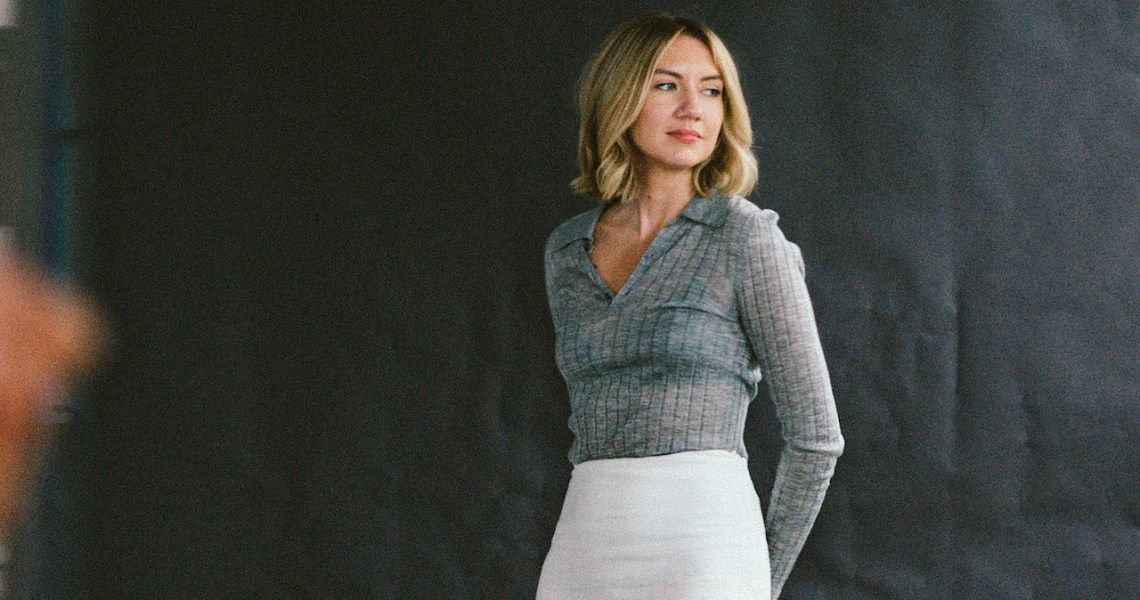For the latest episode of Leading From Home (#LFH), Glossy’s Instagram Live interview series featuring industry insiders logging on from their home offices, Glossy editor-in-chief Jill Manoff talked with Moda Operandi fashion director Lisa Aiken.
From her home in Dumbo, Aiken discussed what’s driven her digital-focused career path, which started at MatchesFashion, where she was an intern, before taking her to MyTheresa, Net-a-Porter and, now, Moda.
“It became very clear, very quickly, that e-commerce was a major opportunity and a major shift that was about to happen in the industry,” she said.
Aiken also shared her thoughts on fashion’s current state and direction, including why IRL fashion shows still matter, how designers are designing for the times and what opportunities she sees in the recent industry challenges.
“I don’t want to disrupt the way the industry works, I just want to make it better,” she said.
Below are additional highlights from the conversation, which have been lightly edited for clarity. Click here for the full conversation.
How the buying process has changed:
“We’ve been going through virtual market for the past two months, for resort ’21, [which are] the deliveries that come in for November and December of this year — so it’s six months ahead. We’ve seen every [collection] largely as photographs and videos — brands have done an exceptional job of trying to give us as much of a sense of the collection as they can. We’ve also had walk-throughs by the creative directors themselves, who want to share key pieces and what they’re thinking. They want to share their process as to how they’ve arrived at the collection and where they think the client’s mindset is right now. So it’s been a completely different experience. I definitely would say that [the buying team] misses the emotional side of being in front of the collection, [and having] that kind of connection to the product. We miss seeing things and having that sense of conviction when you just know that something’s going to be a hit.”
Ad position: web_incontent_pos1
Why fashion shows still matter:
“I can’t advocate more strongly for the runway show to continue in the future, when we get back to a place where it’s safe to do so. It’s such a crucial component of what we do. If I look at the [new] buying process, I have no doubt that my team and I can put together a really gorgeous buy. But when you’re removed, you don’t get to see [a style] walk on Bella Hadid and you don’t see it getting that instant social media reaction. Plus the runway plays into a huge part of our business model at Moda, which is the trunk show — being able to shop directly from the runway. [It allows] you to get a very quick sense of where the client’s mind is and what she’s really loving. Take all of that away, and the industry won’t function as successfully as it does.”
How designers are evolving their collections:
“The most successful collections that I’ve seen have played to the existing strengths of the brand and the creative director, but have also evolved in a way that meets the woman where she is now. I remember talking to Wes [Gordon] at Carolina Herrera, and he was like, ‘The Herrera woman doesn’t want a cashmere tracksuit from us. She will get that somewhere else.’ She’s still looking for those really emotional pieces, and he did an exceptional job of finding a balance within the collection; he still had those really “wow” evening moments that we would look for from Herrera, but there was also a real ease to a lot of the daywear that was included. It’s more about things softening up, relaxing a little bit. Myself and one buyer, in particular, have a real aversion to tailoring right now — we’re just really nervous, like, ‘Who’s putting on a blazer to take a Zoom call?’ So we’ve definitely talked a lot about that within the team. And I have a personal love affair with blazers, so it’s a sad moment for me.”




